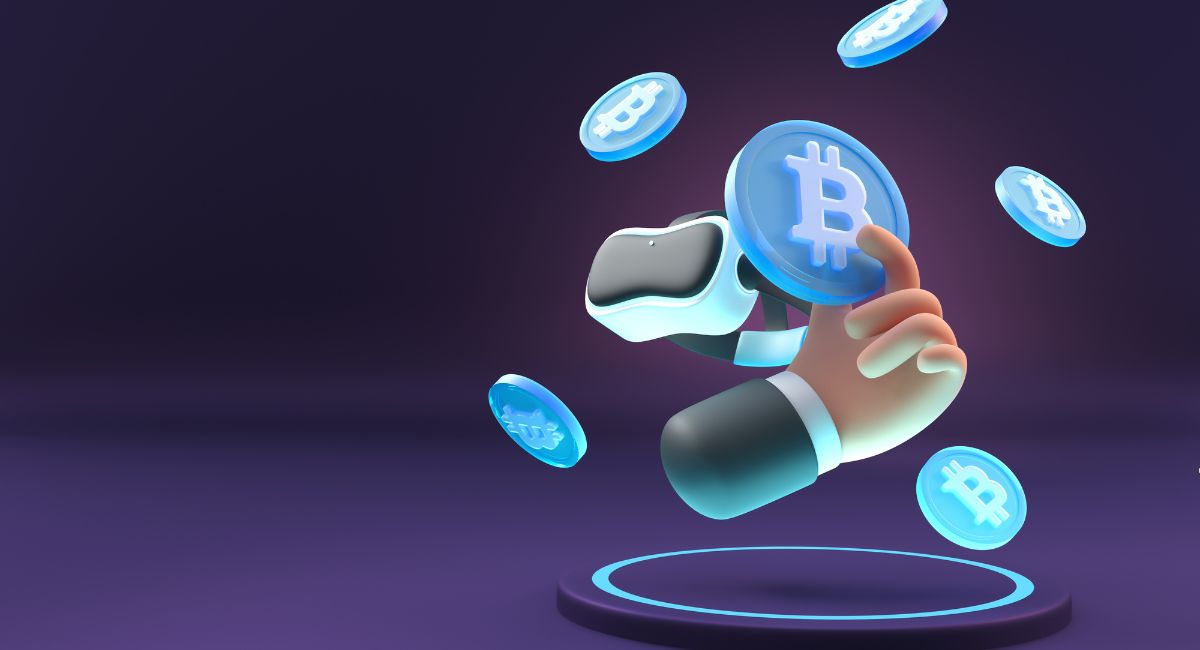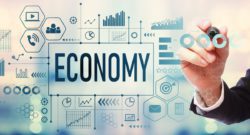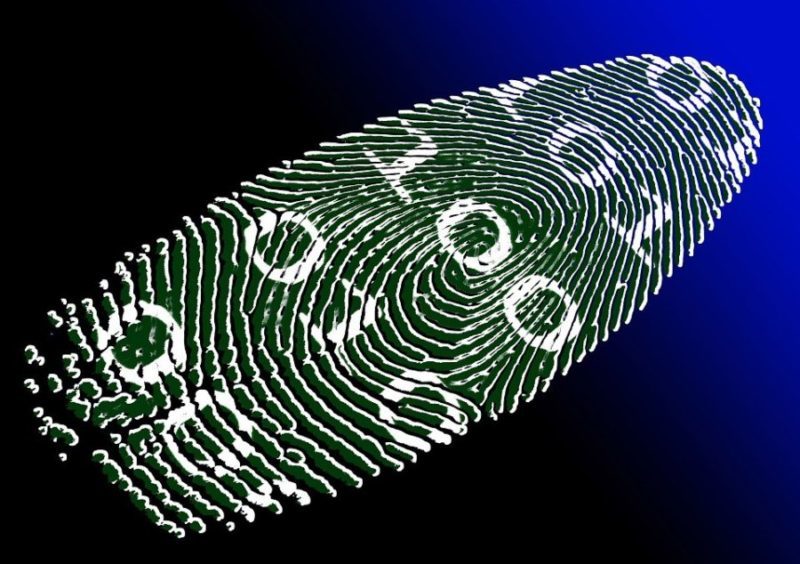Metaverse Economies: How NFTs Are Driving Virtual Commerce and Trade
The term “metaverse economies” refers to the economic systems and interactions that take place within a metaverse. The metaverse is a virtual, digital, or interconnected space where users can interact, create, and engage with each other through immersive technologies, such as virtual reality (VR) and augmented reality (AR). It is essentially a collective virtual shared space that blurs the lines between the physical and digital realms.
In the metaverse, participants can create avatars, explore virtual landscapes, interact with other users, conduct business transactions, engage in social activities, play games, attend events, and much more. As these virtual spaces become more sophisticated and extensive, they give rise to dynamic and self-contained economies that function within the boundaries of the metaverse.
Metaverse economies are fueled by digital assets, virtual currencies, and blockchain technology. These economies enable users to buy, sell, and trade virtual goods, services, and properties. Digital assets within the metaverse can include anything from virtual real estate, virtual clothing, accessories, and art to virtual event tickets, virtual currencies, and other intangible items.
The value and scarcity of these digital assets are determined by supply and demand dynamics, just like real-world economies. For instance, rare and exclusive virtual items can fetch high prices, and users can accumulate wealth and influence based on their holdings and activities within the metaverse.
The concept of metaverse economies has significant implications across various industries, including gaming, entertainment, social media, e-commerce, and even education. Companies and developers are increasingly exploring opportunities to integrate their products, services, and experiences into the metaverse, aiming to tap into the growing user base and capitalize on the potential economic opportunities within this virtual realm.
As the metaverse continues to evolve and become more prevalent, the concept of metaverse economies will likely play a crucial role in shaping the way people interact, work, play, and conduct business in the digital age.
The metaverse is a virtual world that is being created through the convergence of virtual reality (VR), augmented reality (AR), and the internet. In the metaverse, users can interact with each other and with digital objects in a way that is more immersive and realistic than ever before.
One of the key features of the metaverse is the ability to create and own digital assets. These assets can take the form of virtual land, avatars, clothing, weapons, and other items. Digital assets can be bought, sold, and traded in the metaverse, creating a new economy that is based on virtual ownership.
NFTs (non-fungible tokens) are playing a key role in the development of metaverse economies. NFTs are a type of digital asset that is unique and cannot be replaced by another asset. This makes them ideal for representing digital collectibles, such as art, music, and in-game items.
NFTs are being used in the metaverse to create a new economy of virtual ownership. Users can buy, sell, and trade NFTs to acquire digital assets that they can use to express themselves, participate in virtual activities, and even make money.
Big news on the trend of major game developers moving into the new metaverse creator economy being nurtured in Fortnite, with Bungie Founder Alexander Seropian’s new studio Look North World making the leap today. https://t.co/4S6N9Bf3t2
— Tim Sweeney (@TimSweeneyEpic) July 19, 2023
Here are some of the ways in which NFTs are driving virtual commerce and trade in the metaverse:
- Buying and selling virtual land: Virtual land is a valuable asset in the metaverse. It can be used to build homes, businesses, and other structures. NFTs are being used to represent virtual land, making it possible to buy, sell, and trade it in a secure and transparent way.
- Acquiring in-game items: In-game items are digital assets that can be used to improve a player’s experience in a video game. NFTs are being used to represent in-game items, making it possible to buy, sell, and trade them in a secure and transparent way.
- Collecting digital art: Digital art is a growing market, and NFTs are being used to represent digital artworks. This makes it possible to buy, sell, and trade digital art in a secure and transparent way.
- Purchasing virtual clothing: Virtual clothing is a way for users to express themselves in the metaverse. NFTs are being used to represent virtual clothing, making it possible to buy, sell, and trade it in a secure and transparent way.
NFTs are still a new technology, but they have the potential to revolutionize the metaverse economy. By allowing users to buy, sell, and trade digital assets in a secure and transparent way, NFTs are making it possible to create a new economy of virtual ownership.
Top 10 ways NFTs are affecting Metaverse economies
NFTs (Non-Fungible Tokens) are playing a transformative role in driving metaverse economies, revolutionizing the way digital assets are created, owned, and traded within virtual environments. Here are the top 10 ways NFTs are shaping and fueling metaverse economies:
1. **Digital Asset Ownership:** NFTs enable true ownership of digital assets within the metaverse. Artists, creators, and developers can tokenize their unique digital creations, such as virtual art, fashion items, or virtual real estate, allowing users to buy, sell, and trade these assets securely on blockchain-based marketplaces.
2. **Scarce and Exclusive Assets:** NFTs imbue digital assets with scarcity and exclusivity, making them desirable collectibles within the metaverse. Rare NFTs, like limited edition virtual items or in-game collectibles, can command high values and drive a thriving market for virtual assets.
3. **Cross-Platform Interoperability:** NFTs facilitate cross-platform interoperability, allowing users to transfer and utilize their digital assets across different virtual worlds and metaverse ecosystems seamlessly. This portability enhances the overall value and utility of NFTs.
4. **Virtual Real Estate Development:** NFTs have enabled the emergence of virtual real estate markets within the metaverse. Users can purchase, develop, and monetize virtual properties through NFTs, creating opportunities for virtual landowners to generate income within the virtual realm.
5. **In-Game Assets and Items:** NFTs have revolutionized the gaming industry by tokenizing in-game assets and items. Players can now truly own their virtual belongings, and developers can design games that incorporate NFT-based ownership and trading mechanics, fostering vibrant in-game economies.
6. **Virtual Fashion and Wearables:** NFTs are driving the virtual fashion industry, allowing users to own unique and customizable virtual clothing, accessories, and wearables. The demand for exclusive virtual fashion items is propelling a new market for digital couture within the metaverse.
7. **Virtual Events and Tickets:** NFTs are used to create exclusive virtual event tickets and experiences. Attendees can own NFT-based tickets, granting them access to virtual conferences, concerts, and other events, while also serving as collectibles commemorating their participation.
8. **Virtual Art and Creativity:** NFTs are empowering artists and content creators within the metaverse, enabling them to tokenize their digital art and intellectual property. These artists can then directly monetize their creations through NFT sales and royalties, bypassing traditional intermediaries.
9. **Decentralized Virtual Marketplaces:** NFTs have led to the emergence of decentralized virtual marketplaces, allowing users to buy, sell, and trade digital assets peer-to-peer, without the need for central authorities. These marketplaces foster transparency, security, and autonomy for participants.
10. **Digital Identity and Reputation:** NFTs can be used to represent digital identity and reputation within the metaverse. Users can own NFT-based avatars, badges, or certificates, showcasing their achievements and status, thus enhancing social interactions and engagement within virtual communities.
In conclusion, NFTs are catalysts for the growth and vitality of metaverse economies. By providing verifiable ownership, scarcity, and interoperability of digital assets, NFTs are transforming the virtual landscape, enabling new opportunities for creators, businesses, and users to participate in dynamic and flourishing metaverse economies.
10 things that escalated the development of metaverse economies:
The rise of blockchain technology: Blockchain technology is the foundation of the metaverse. It provides a secure and decentralized way to store and track data. This is essential for creating a virtual world where users can own and trade digital assets.
The development of virtual reality (VR) and augmented reality (AR): VR and AR are technologies that allow users to interact with the metaverse in a more immersive way. VR headsets create a fully immersive experience, while AR overlays digital content onto the real world.
The growth of NFTs: NFTs (non-fungible tokens) are digital assets that are unique and cannot be replaced. They are used to represent ownership of digital items, such as artwork, music, and in-game items. NFTs are becoming increasingly popular in the metaverse, as they allow users to own and trade digital assets.
The increasing popularity of gaming: Gaming is one of the most popular applications of the metaverse. Players can interact with each other in virtual worlds, explore different environments, and participate in various activities. The popularity of gaming is driving the development of the metaverse economy.
The growing demand for virtual goods and services: As the metaverse becomes more popular, the demand for virtual goods and services is increasing. This includes items such as clothing, furniture, and weapons for avatars, as well as access to virtual events and experiences. The demand for virtual goods and services is creating new opportunities for businesses to generate revenue in the metaverse economy.
The increasing investment in metaverse projects: Venture capitalists and other investors are increasingly investing in metaverse projects. This is due to the potential of the metaverse to create new businesses and generate significant revenue. The investment in metaverse projects is helping to accelerate the development of the metaverse economy.
The development of open metaverse platforms: Open metaverse platforms are platforms that allow users to create and explore virtual worlds without the need for a single centralized authority. This is in contrast to closed metaverse platforms, which are owned and controlled by a single company. Open metaverse platforms are seen as more democratic and decentralized, and they are gaining popularity among users.
The development of cross-platform compatibility: Cross-platform compatibility is the ability for users to access the metaverse from different devices. This is important for ensuring that the metaverse is accessible to a wide range of users. Cross-platform compatibility is also important for facilitating the exchange of virtual goods and services between different platforms.
The development of standardized protocols: Standardized protocols are rules that govern the way that data is exchanged between different systems. They are essential for ensuring that the metaverse is interoperable and that data can be shared between different platforms. The development of standardized protocols is helping to accelerate the development of the metaverse economy.
The growth of the global digital economy: The global digital economy is growing rapidly. This is creating new opportunities for businesses to generate revenue in the metaverse economy. The growth of the global digital economy is helping to drive the development of the metaverse economy.
Overall, the metaverse is a rapidly developing field with the potential to create new businesses and generate significant revenue. The factors listed above are all contributing to the development of the metaverse economy. As the metaverse continues to grow, it is likely that we will see even more innovations and developments in this exciting field.
Also, read – Navigating The Metaverse Economy: Top 10 Virtual Currencies For Virtual Marketplaces
The Future of Metaverse Economies
The metaverse is still in its early stages of development, but the potential for NFTs to drive virtual commerce and trade is enormous. As the metaverse continues to grow, we can expect to see even more innovative ways to use NFTs to create a new economy of virtual ownership.
Here are some of the trends that we can expect to see in metaverse economies in the future:
- The growth of decentralized exchanges (DEXs): DEXs are peer-to-peer exchanges that allow users to trade NFTs without the need for a centralized authority. DEXs are becoming increasingly popular in the metaverse, as they offer a more secure and transparent way to trade NFTs.
- The development of new NFT standards: As the metaverse economy continues to grow, we can expect to see the development of new NFT standards. These standards will make it easier for developers to create and use NFTs, and they will also help to ensure the security and transparency of NFT transactions.
- The increasing adoption of NFTs by businesses: Businesses are starting to adopt NFTs in a variety of ways. For example, some businesses are using NFTs to sell tickets to events, while others are using them to represent loyalty points or reward programs. As the metaverse economy continues to grow, we can expect to see even more businesses adopting NFTs.
The future of metaverse economies is bright. As the metaverse continues to grow, we can expect to see even more innovative ways to use NFTs to create a new economy of virtual ownership.
Stay informed with daily updates from Blockchain Magazine on Google News. Click here to follow us and mark as favorite: [Blockchain Magazine on Google News].
Get Blockchain Insights In Inbox
Stay ahead of the curve with expert analysis and market updates.
latest from tech
Disclaimer: Any post shared by a third-party agency are sponsored and Blockchain Magazine has no views on any such posts. The views and opinions expressed in this post are those of the clients and do not necessarily reflect the official policy or position of Blockchain Magazine. The information provided in this post is for informational purposes only and should not be considered as financial, investment, or professional advice. Blockchain Magazine does not endorse or promote any specific products, services, or companies mentioned in this posts. Readers are encouraged to conduct their own research and consult with a qualified professional before making any financial decisions.

 Bitcoin
Bitcoin  Ethereum
Ethereum  Tether
Tether  XRP
XRP  Solana
Solana  Dogecoin
Dogecoin  USDC
USDC  Cardano
Cardano  Lido Staked Ether
Lido Staked Ether  TRON
TRON  Avalanche
Avalanche  Chainlink
Chainlink  Toncoin
Toncoin  Wrapped stETH
Wrapped stETH  Shiba Inu
Shiba Inu  Sui
Sui  Wrapped Bitcoin
Wrapped Bitcoin  Hedera
Hedera  Stellar
Stellar  Polkadot
Polkadot  Hyperliquid
Hyperliquid  WETH
WETH  Bitcoin Cash
Bitcoin Cash  LEO Token
LEO Token  Uniswap
Uniswap  Litecoin
Litecoin  Pepe
Pepe  Wrapped eETH
Wrapped eETH  NEAR Protocol
NEAR Protocol  Ethena USDe
Ethena USDe  Aave
Aave  Aptos
Aptos  Internet Computer
Internet Computer  USDS
USDS  Cronos
Cronos  POL (ex-MATIC)
POL (ex-MATIC)  Ethereum Classic
Ethereum Classic  Mantle
Mantle  Render
Render  Bittensor
Bittensor  Artificial Superintelligence Alliance
Artificial Superintelligence Alliance  MANTRA
MANTRA  WhiteBIT Coin
WhiteBIT Coin  Monero
Monero  Arbitrum
Arbitrum  Dai
Dai  Algorand
Algorand 









